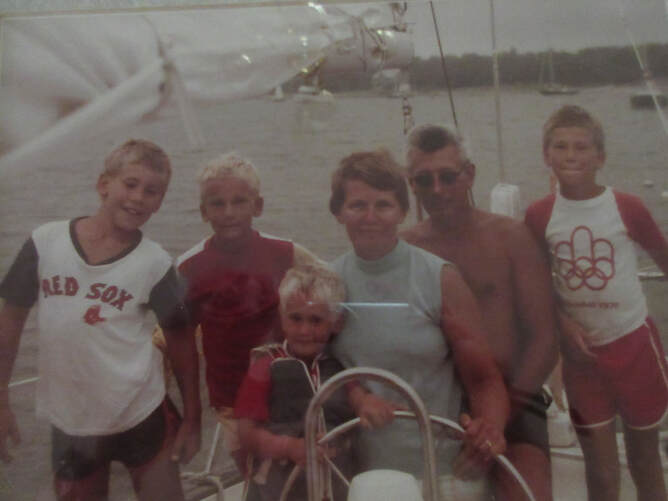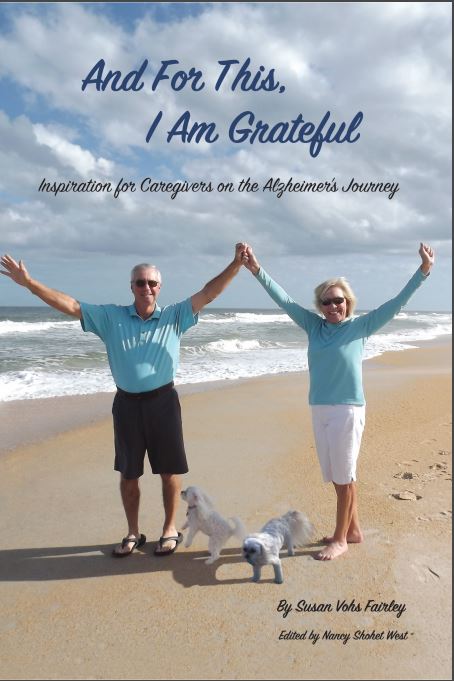
As she saw it, the obvious response to this grant opportunity might be to schedule lectures or seminars about loneliness and depression, or recruit a social worker to run a support group. But years of experience had convinced her that this probably wasn’t a fruitful approach. She had come to believe that when seniors are feeling isolated, lonely or generally unhappy, they don’t particularly want to talk about it, or even hear someone else try to offer insights into loneliness.
Instead, she wanted to use the grant money to help them transcend their loneliness. Knowing that my business is devoted to helping seniors write and self-publish their memoirs, she called me to ask how I might be able to help. The money wasn’t enough to cover my typical project fee for a book-length memoir; nor did she imagine that many seniors who hadn’t previously considered a project of that nature would feel ready to embark on a full-scale memoir. What might we be able to offer instead?
Together, she and I formulated a plan. What if we invited any interested senior to participate in just one interview of up to an hour? They could use that hour to tell whatever kind of account they wanted: they could talk about one time period or segment of their life, or offer a condensed overview of their entire life story.
I loved the simplicity of it. Usually my memoir projects involve an average of eight to twelve hours of interviews, followed by a lot of writing time and multiple rounds of revisions. According to this idea, the participant would have one hour to tell me the story; I’d write it up; and then the participant would have the opportunity for one round of revisions. They’d then receive a basic printed copy of their story: unlike my longer projects, it would include no fancy design or formatting work; no binding; no cover.
In order to complete the grant application, the outreach director had to be able to express just how this would address the question of loneliness and isolation. The seniors would get an hour-long conversation with me, of course, but that was only the beginning. Thinking over which story or segment from their lives they wanted to tell me would allow them to indulge in some introspection. We would encourage them to engage their family or longtime friends in the process, asking those closest to them what those potential readers would like to know more about. And once I’d written up the “mini-memoir,” maybe the participants would even choose to continue working on telling more of their story themselves.
It didn’t take more than a week or two after we announced the initiative to find ten eager seniors, and I started setting up the interviews. I was ready to give the participants some coaching if they weren’t sure what kind of story they wanted to tell, but most of them knew exactly what they wanted to talk about, and I soon discovered that the interviews went fast and fluently. Two of the participants were women in their eighties who have lived in our town all of their lives and wanted to talk about their childhoods, young married years, and all that has changed in the world around them. Another participant told the story of a particularly formative year he spent traveling and teaching in the Mideast and Europe. A woman in her seventies described her years as a young military wife living in Germany. A man who had moved recently to town talked about owning and running a popular restaurant in New York City and all the adventures that experience brought his way. One participant poignantly wanted her children to understand the emotional trauma she had suffered as the child of a single mother with mental illness and how it informed her choices in adulthood. Another woman told of how the activism of the 1960s, when she was a teenager, influenced her decision to become a journalist. A recently widowed man chose to tell the story of meeting his wife and the many interesting years they spent together. And a grandfather of nine told of his many years racing sailboats, followed by many more years teaching his four sons to sail and organizing family vacations around this passion.
As we anticipated, some participants told me their story, read through a draft, made a few small edits and then gratefully accepted their printed copy. Some wanted enough copies to distribute to their children and grandchildren, which was easily accommodated for a very small fee; one sent copies of her account of childhood to her sisters and first cousins.
But others asked for the electronic file instead, so they could keep working on it themselves. In some cases they had been planning to write a memoir for years but couldn’t get over the hurdle of starting it, and this small piece of writing provided them with a launch pad. One participant thought his story was done after I wrote it up, but his grandchildren read it and had a lot of follow-up questions, which inspired him to write more about his life on his own. Some participants shared their story with relatives, neighbors, community members or even their local library.
In summary, the benefits were just as the COA outreach manager anticipated. The seniors enjoyed reflecting on their lives and sharing their stories. The interest that family members and others took in the project bolstered their spirits, and especially for those who used this as a starting point to continue writing on their own, the project definitely met the grant’s original goal of alleviating some of the sadness and boredom of this current time of isolation.
For me, the approach was new and illuminating. I tell my regular memoir clients they can have as many hours of interviewing as they need; I’d never thought about trying to see what could be accomplished if we limited our discussion to just one hour. I liked the way each participant came to the interview with a different plan. It made me wonder if potential memoir clients who are apprehensive about getting started would benefit from this approach – try just an hour and see what you can get through.
The deliverable is a very small piece of writing, not comparable at all to my usual full-length memoir projects and lacking in design, layout and photos, but it’s an interesting alternative way to approach the idea of memoir. I’m grateful that I was given the opportunity to work with these seniors and get a new perspective on my work.
Interested in knowing more about one-hour mini-memoirs? Contact me at [email protected] to discuss your options!

 RSS Feed
RSS Feed